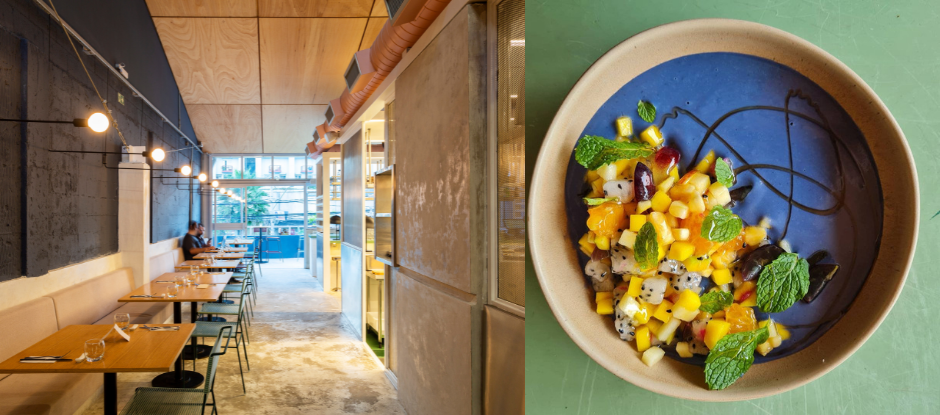As winner of the Flor de Caña Sustainable Restaurant Award for Latin America’s 50 Best Restaurants 2021: Pasado y Futuro, Corrutela in São Paulo is pioneering a number of initiatives to help protect the planet. 50 Best speaks to chef-owner Cesar Costa about waste management, education and serving plant-based cuisine equally loved by the new and old generations
When asked why he decided to create a restaurant entirely focused on sustainability, Cesar Costa’s answer is simple: “Because the planet needed it.” In Corrutela, the restaurant he opened in São Paulo in 2018, not only is he fulfilling his planet-saving mission, he is also providing a model to inspire future generations of chefs and consumers.
“I understand we’re a fine dining restaurant, but one of my main aims is to start a conversation within the industry so that all types of businesses will look at what they’re doing and how they can adapt,” says the 30-year-old chef, whose restaurant achieved a score of 78% in the Food Made Good assessment, earning it the Flor de Caña Sustainable Restaurant Award. “I’ve always tried to be open with the community so that people can really reflect and put things into practice.”
At the restaurant in São Paulo’s Vila Madalena neighbourhood, Costa has pioneered the use of a composter to aid his zero-waste approach, a series of solar panels providing the restaurant’s energy, the sourcing of local-only, seasonal, organic ingredients and the use of glass bottles and reusable containers to minimise plastic consumption across the supply chain. Many of these initiatives have been copied by other restaurants, a fact of which the chef is extremely proud.
“It would be egoism on my part not to share what I’m doing,” says Costa. “It’s really cool when I receive feedback from other people, other chefs. When anyone comes to the restaurant and asks about what I’m doing, I’m always happy to share my contacts.”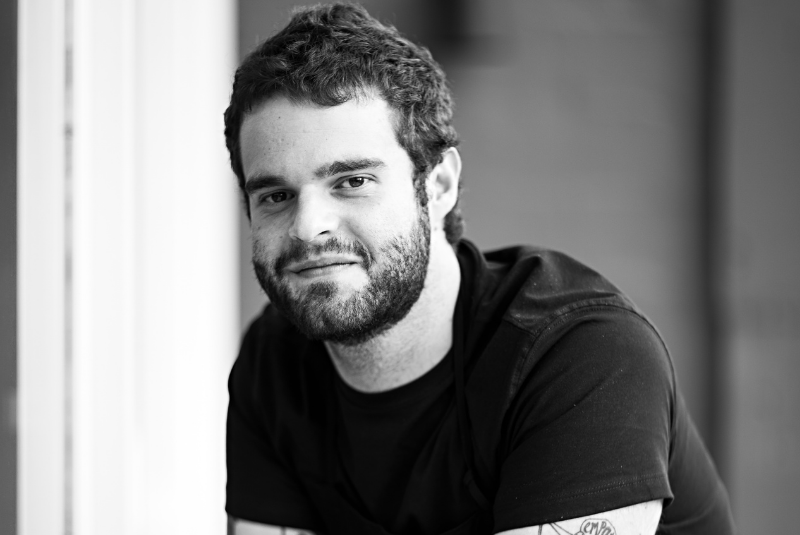
Inspired by his rural upbringing, Corrutela's head chef Cesar Costa creates vegetable-led dishes
Understanding nature’s portfolio
Costa himself is a big fan of education, but not necessarily in the traditional sense, having dropped out of culinary school after just one semester in favour of learning on the job. The youngest of four children, he grew up in Piracicaba, about 150km from São Paulo city, with a 16-year age gap between him and the next-youngest. His father and all of his siblings were doctors, so he was destined to follow the same path, but things changed after his father died when Costa was 11.
“I was raised by my mother, who was a housewife and cook from Minas Gerais, so I didn’t have that pressure to become a medic,” he says. “It sounds cliché, but if I hadn’t become a cook, I wouldn’t have developed a relationship with my mother.”
Following in the footsteps of his mum Antonia Maria ‘Toninha’, a big fan of television cooking shows, he started baking cakes and helping out in the kitchen. He also spent a lot of time in the countryside with his uncle, a genetic engineer who worked with different species of lettuce, peppers and squash to create new varieties.
“From a young age, I understood about culinary biodiversity,” he says. “I learned that we have squash, but we also have yellow squash, green squash, round squash. If you can see the huge portfolio that nature offers, that will go in your favour.”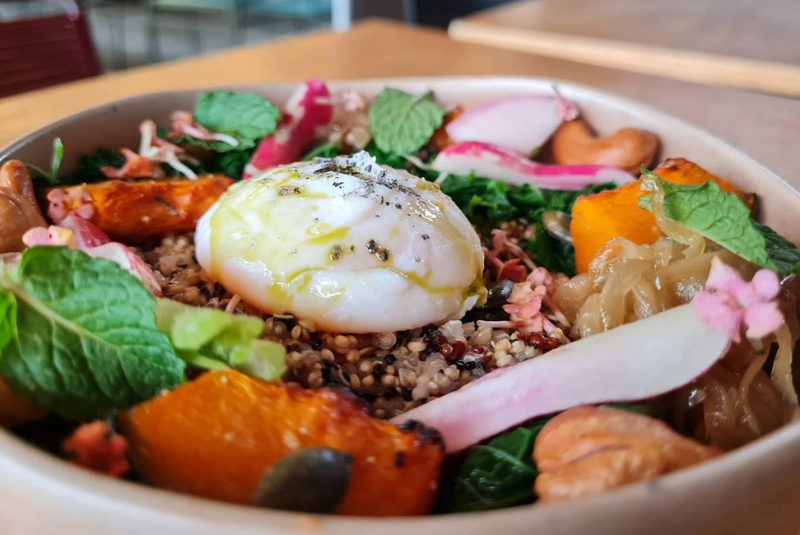
One of Corrutela's popular dishes: quinoa bowl wtih organic vegetables, poached egg and fresh herbs
Modern grandma food
Now Costa cooks with the full gamut of nature’s portfolio, sourcing ingredients like broccoli from small farmers within the state of São Paulo. His dishes are primarily vegetable-led, with signatures including cooked beetroot with blue cheese and star fruit, or grilled mixed squash and courgettes with yoghurt, dukkah and nuts. A particular standout is his ovos nevados, a creative adaptation of the French ‘floating islands’ recipe, made with jenipapo, a Brazilian fruit that turns the dish a deep Pantone blue. Though Corrutela entered the Latin America’s 50 Best Restaurants list in 2020, it is not a tasting menu restaurant, and has just a short list of simple, mostly plant-based (but not all vegan) dishes.
Corrutela appeals to a young, trendy audience with its industrial-chic interior of dark grey walls, concrete floors and exposed overhead pipes, but it is surprisingly popular with the older generation too. That might have in part to do with a term that one of Costa’s staff suggested to describe his cuisine: ‘modern grandma food’.
“I loved that description because I get a lot of my influences from the food of our grandmothers, from the farm. I have a stone mill, which actually makes Corrutela very popular with the older generation here in São Paulo. We have a lot of loyal senior customers, especially at lunch time.”
The name of the restaurant is also inspired by Costa’s countryside-meets-urban upbringing: a seldom-used word in Portuguese, ‘Corrutela’ roughly translates as ‘between the city and the countryside’ and comes from the tiny hamlets found beside roads leading to big Brazilian cities. It reflects the spirit of serving country fare in the concrete jungle that is São Paulo.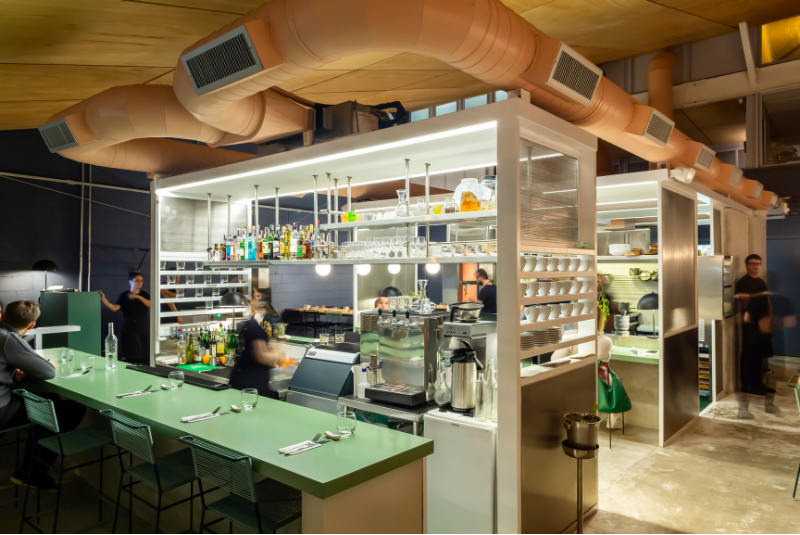
The interior of Corrutela in São Paulo, Brazil
Making a difference in Brazil
Though the seeds were planted in his childhood, Costa’s passion for sustainability really began to germinate when he worked at Alice Waters’s Chez Panisse in Berkeley, California, and then at Christian Puglisi’s now-shuttered Relae in Copenhagen, a global winner of the Sustainable Restaurant Award. Before working at those restaurants, he had also cooked at classic French restaurants and seen the quantity of food that often went to waste.
“The classic restaurant model is built around waste,” explains Costa. “They cut ingredients into tiny perfect cubes and then wasted the rest, while skins would go in the bin and there were heaps of plastic. At Chez Panisse, I understood that it could be done differently. By the time I opened Corrutela, I realised I could make a difference in Brazil, which is one of the biggest waste-producing countries. It’s an enormous generator of plastic and we have the huge issue of the destruction of the rainforest. I wanted to serve as an example to others and to show that it is possible to [be sustainable] in Brazil too. It’s not about financial investment; it’s about attitude and the mindset you create.”
For Costa, that mindset is about making the right choices – for example, buying 100% Brazilian produce and serving primarily vegetables over animal protein, which has a greater carbon footprint. Both of these choices are currently serving him well for financial reasons too, as Brazil faces the weakest currency and highest inflation his generation has ever seen, making imported ingredients and meat products prohibitively expensive. There’s another simple solution he recommends for restaurants everywhere.
“The current inflation situation has me worried for the whole industry,” he says. “The cost of ingredients is increasing, so it’s more important than ever to make sure you’re using the whole product. A lot of times, when people buy an ingredient, they throw a lot of it away, which represents an economic loss. Using the whole product is a very viable alternative. It’s important to see the financial benefits that sustainability can bring.”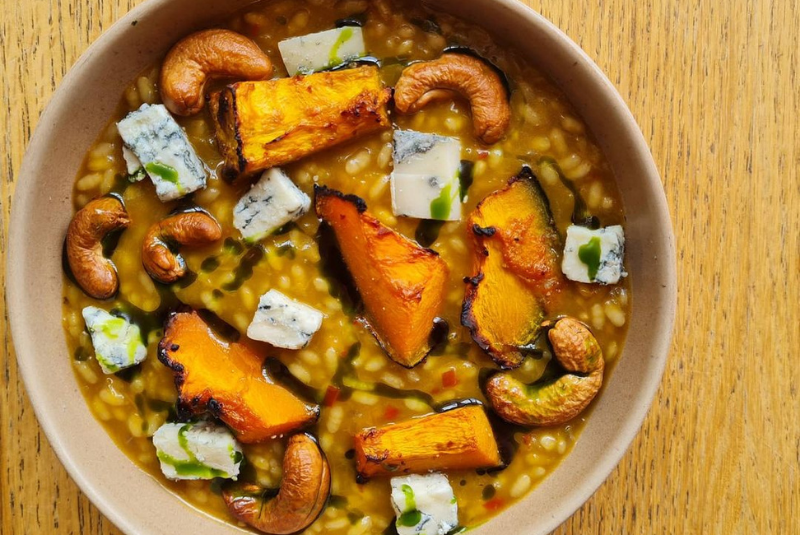
Corrutela's dishes are designed to be sustainable and minimise waste (pictured: roasted pumpkin rice with blue cheese and roasted cashew nuts)
Prioritising people
For Costa, sustainability is also about people, and Corrutela is all about training his staff to fully understand the why of everything they do at the restaurant. He welcomes (paid) stagiaires from all over the world and pays his staff at least the national living wage, building a workforce that feels empowered and fully on board with his mission.
“It’s important to me to create the right environment, to create a dialogue with the team,” he says. “It won’t work if your environment feels forced. You have to educate people so that they understand why you’re doing what you’re doing.”
The pandemic, of course, has been a learning experience not just for the team but for Costa too. One of his great learnings was around delivery, which many restaurants started for the first time simply to make ends meet during a series of enforced lockdowns. After starting a delivery service almost overnight and running it on and off for a year, Costa eventually concluded it didn’t work, partly due to the cost of biodegradable packaging and partly because of the issues associated with the big delivery operators in Brazil.
“I don’t want to judge, but as well as the environmental issues, there are complicated social issues around delivery, because in Brazil we mostly have large platforms like Rappi and iFood. There’s a whole social context around staff remuneration, working conditions and the fossil fuel used to deliver food. There are some bicycle services, but I can’t use those to deliver to certain neighbourhoods. The virtues of a restaurant such as ours become undone when you start to do delivery,” he reflects.
Small changes, big results
For the past six months, Corrutela has been closed due to a combination of pandemic-related and personal reasons, but it is finally reopening by the end of 2021. There will be a greater focus on natural wines and a return to some of Costa’s favourite classic dishes, as well as new seasonal creations.
As he puts all his efforts into reopening, Costa hopes the Flor de Caña Sustainable Restaurant Award will teach others about the easy wins that can be made to better protect the environment both at home and in the restaurant, from choosing local to using the whole of the product.
“It’s these small attitude changes, these small choices, that will make a difference,” he says.
Watch the video of Corrutela, winner of the Flor de Caña Sustainable Restaurant Award 2021:
Browse the list of Latin America’s 50 Best Restaurants 2021: Pasado y Futuro, sponsored by S.Pellegrino & Acqua Panna, on the website, and follow us on Instagram, Facebook, Twitter and YouTube for the latest news, features and videos.
